Raspberries are the fruits of raspberry bushes. They have a really nice color and irresistible taste. Typical of them is that they are best developed in hilly and mountainous areas and areas with a cool, moist climate.
The history of raspberries in Europe began when the Crusaders brought them on the to return to their homeland. The birthplace of the delicious fruit is considered Mount Ida in today's Turkey. Although in the 18th century raspberries are already widely known in Europe, keeping them in many places began only a century later. Raspberries have a complex structure of many small fruits that are adjacent to one another, each has its own edible seeds.
Most common are two harvested types of berries: those that grow in June, but also those in the spring. Spring crops are out at the end of July and the end of August and continue until it gets cold. To produce good berries, the weather should not be too wet nor too dry or hot. Raspberries are susceptible to fungus if the weather is too humid and wet.
Raspberries have many colors except red, they can be black, purple and gold. Raspberries are a type of blackberry. They are different from blackberries in that they have a cavity when detached from the stem.
Raspberries are usually expensive in grocery stores because they are very soft and easily hurt, difficult to store, you have to eat quickly so be sure to pick them yourself.
Composition of raspberries
Raspberries contain a high amount of potassium, vitamin A and calcium. They contain about 50% of the recommended daily intake of vitamin C. Raspberries are a very healthy food, with a high content of vitamin C and no fat, cholesterol or sodium. They are also a good source of iron and folate (which is used especially in the treatment of low red blood cells, or anemia).
Raspberries are rich in fiber. Half to one kilogram of berries a day can provide twenty to thirty grams of fiber, which is mandatory for an adult per day. So if you can, eat raspberries, blackberries and blueberries with pleasure.
100 g of raspberries contains 52 calories, 1.2 g protein, 0.65 g fat and 11.9 g carbohydrate. 200g raspberries are sufficient to cover the necessary amount of vitamin C per day.

Selecting and storing raspberries
Select rounded, solid, completely red raspberries (yellow or purple, if the color belongs to the variety). Unripe fruits, if picked, no longer mature. When ripe raspberries detach easily - and become dark red. If removing a raspberry takes effort, then it is not ripe yet. 1 cup of raspberries is around 123 grams and has an average of 64 calories.
Do not buy large quantities of raspberries, as they quickly soften and go moldy at room temperature and in the refrigerator can be stored up to two days. Can easily be frozen, wash them and put them in a bag that is sealed so that no air is left in it.
Whether picking raspberries in the garden or greenhouse, here are some tips to consider:
- Be careful, your feet and knees can damage the fruit, if you move off the edge of the raspberry row.
- Extract only those fruits that are fully ripe.
- Turn back the leaves, so you will not miss any hidden one that is already ready to rupture.
- Avoid exposing the already detached raspberries for a long time to the sun. It is better to leave them in the shade under a tree or in a box.
- Raspberries can be stored in the refrigerator for 2-3 days, depending on the state in which they were picked. After a few days, however, the fruit loses its freshness, color and shrinks.
- Do not wash the fruit until you are ready to eat it. Washing makes them susceptible to spoilage.
- Raspberries are similar to blueberries and strawberries, so quickly put them in the fridge. Temperatures between 3 and 8 degrees are good for storing raspberries, but be careful not to freeze them! (Fresh raspberries are highly susceptible to frost damage).
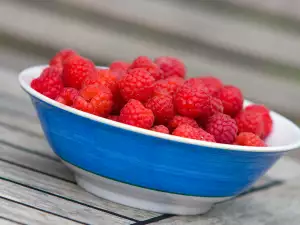
Due to the difficulty of their storage, eat the berries as quickly as possible. Put them in a large bowl and remove the hair and fungus on them, if any.
Culinary uses of raspberries
Raspberries are delicious fruits that can be eaten alone or in combination with various other fruits. In addition, raspberries make delicious jams, compotes and juices. Raspberries are in the composition of some of the most delicious cakes and pastries, they can be used both for decoration and fillings of sweet temptations.
Raspberries are combined very well with berries, and can be added into your morning muesli. Puree raspberries with ice and get delicious homemade ice cream. Frozen raspberries are used in the same way - in ice cream, milk or cereal. Dried berries be can put in a delicious whole grain cake with nuts.
Benefits of Raspberries
Raspberries contain acid, which protects the body from cancer and diseases. Also used for lowering blood sugar and eliminates carbohydrates from the blood of diabetics. Raspberries improve digestion and are recommended for relieving abdominal pain and their high acidity helps with gastrointestinal disorders. Coumarin in raspberries normalizes blood clotting and strengthens blood vessels.
It has been shown that berries have a strong inflammatory action. In mild colds, one does not need to resort to drugs. Decoction is made from boiled and dried berries, according to many healers tends to lose body heat. This potion will get rid of colds diseases, without the intervention of drugs.
Raspberries are a good solution for a hangover because they have the ability to quickly help rid your body clean of the harmful ingredients in alcohol.
Diet with raspberries
Raspberries are low in calories and can therefore be consumed in unlimited quantities and can be included in the different dietary regimes.
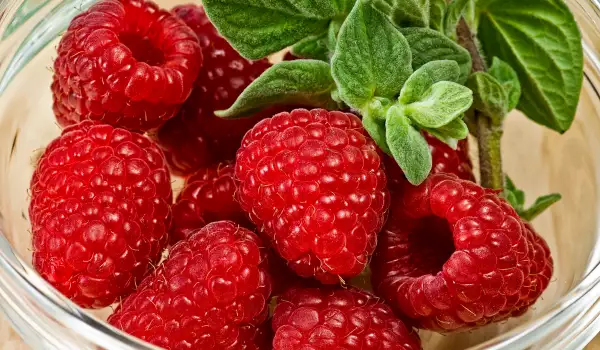
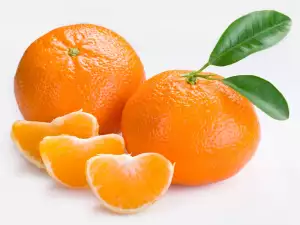
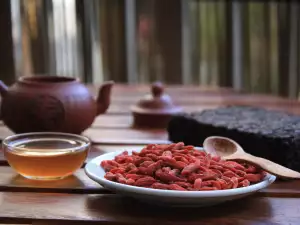
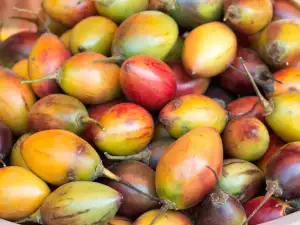

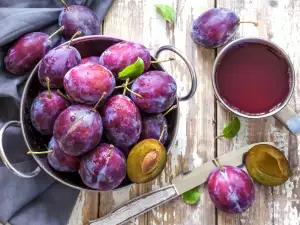
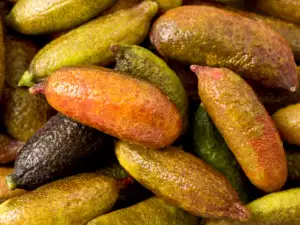
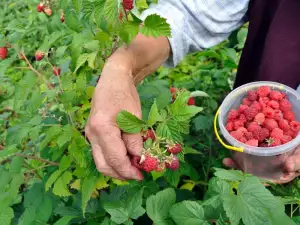

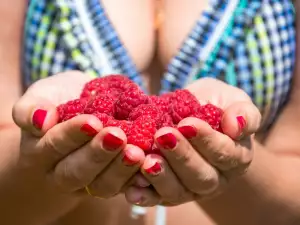

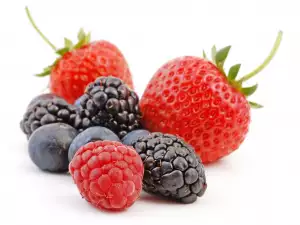
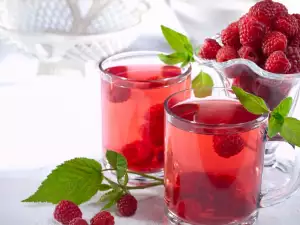
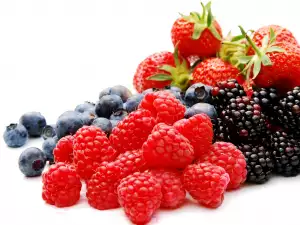
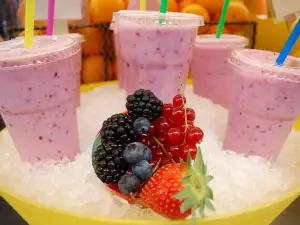
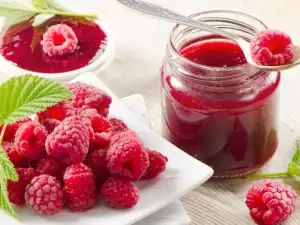




Comments